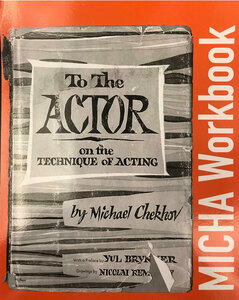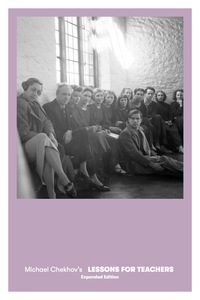Michael Chekhov: Critical Issues Reflections Dreams
$5.00
MICHA published this book in celebration of its 10th anniversary. In it MICHA faculty members Marjolein Baars, Ragnar Freidank, Joanna Merlin, Lenard Petit, Ted Pugh and Fern Sloan reflect on their first encounters with Chekhov’s technique. Collectively these reflections tell the underlying story of MICHA and the rich lineage that precedes the formation of our Association. In addition, members of MICHA’s wide reaching community offer extensive articles that delve into more critical issues. Maria Cominis, Sheldon Deckelbaum, Scott Fielding, Leslie-Ann Timlick and Michael Yawney write on topics that range from discussing the significance of Chekhov and Stanislavsky’s views on divided and dual consciousness to directing utilizing the invisible conditions inherent in style. Other articles examine ways that the Chekhov Technique has been taught and viewed in tandem with the work of Moshe Feldenkrais, Uta Hagen, Jerzy Grotowski as well as the Suzuki and Viewpoints methods. 70 pages and printed in full color.
Description
MICHA published this book in celebration of its 10th anniversary. In it MICHA faculty members Marjolein Baars, Ragnar Freidank, Joanna Merlin, Lenard Petit, Ted Pugh and Fern Sloan reflect on their first encounters with Chekhov’s technique. Collectively these reflections tell the underlying story of MICHA and the rich lineage that precedes the formation of our Association. In addition, members of MICHA’s wide reaching community offer extensive articles that delve into more critical issues. Maria Cominis, Sheldon Deckelbaum, Scott Fielding, Leslie-Ann Timlick and Michael Yawney write on topics that range from discussing the significance of Chekhov and Stanislavsky’s views on divided and dual consciousness to directing utilizing the invisible conditions inherent in style. Other articles examine ways that the Chekhov Technique has been taught and viewed in tandem with the work of Moshe Feldenkrais, Uta Hagen, Jerzy Grotowski as well as the Suzuki and Viewpoints methods. 70 pages and printed in full color.



